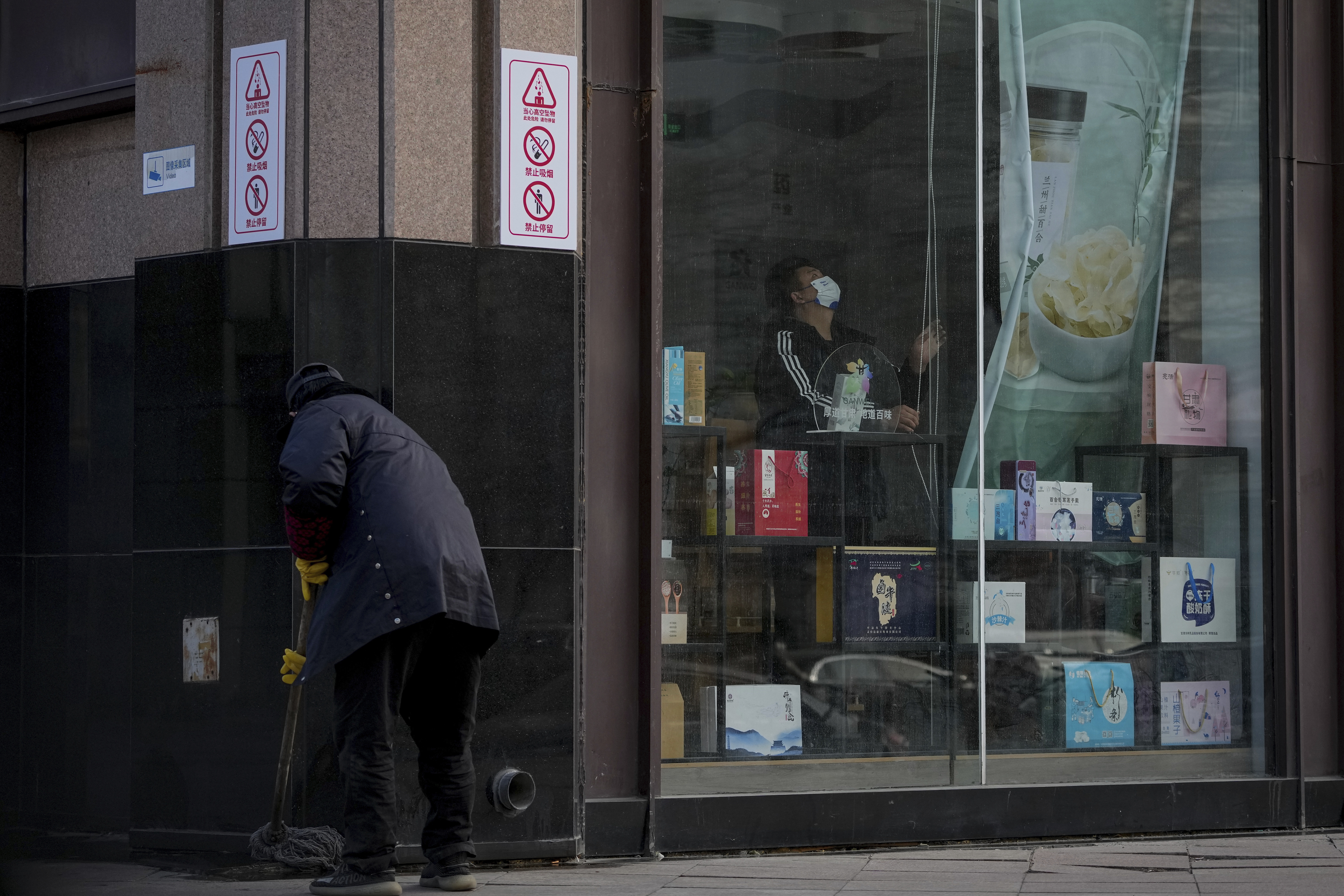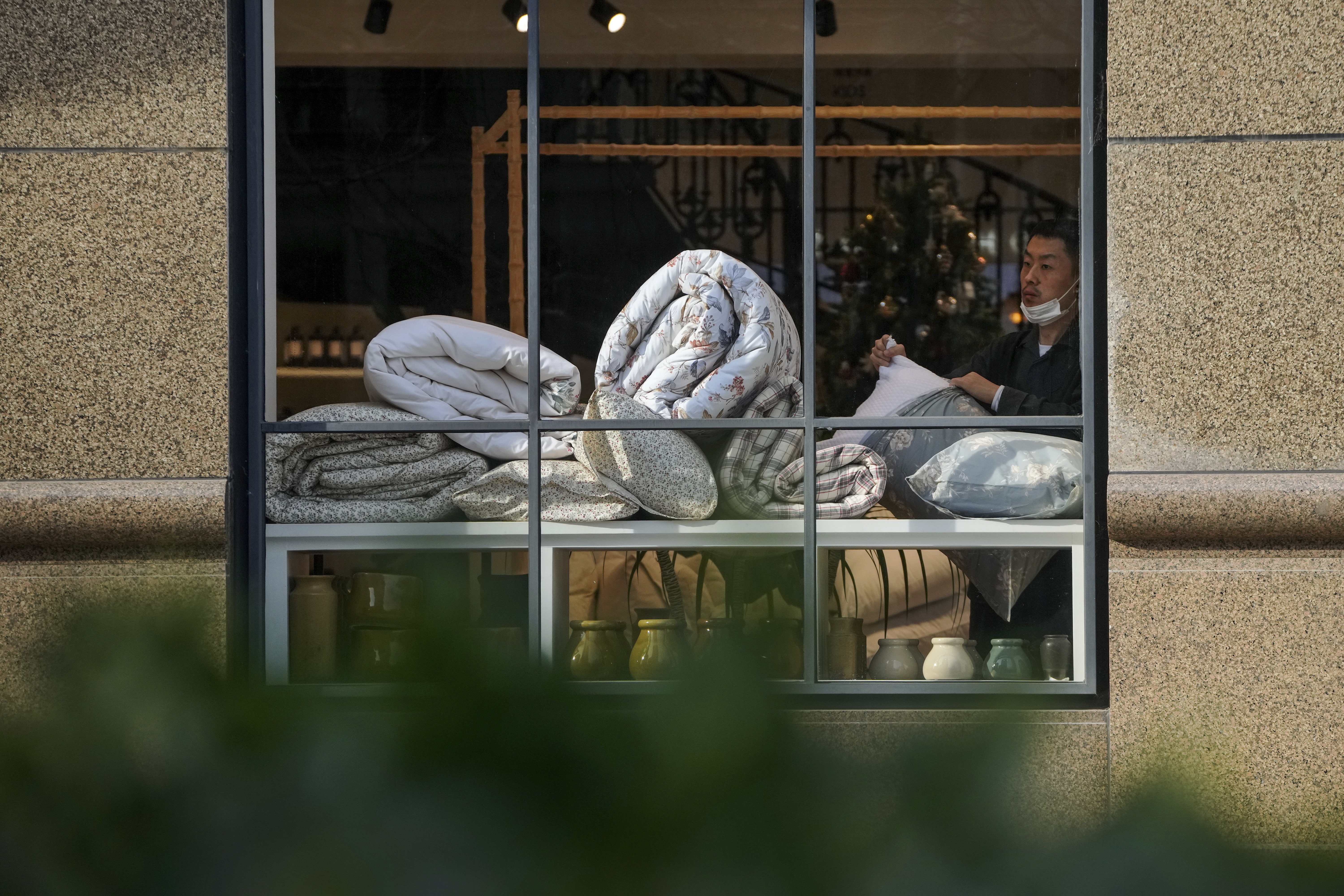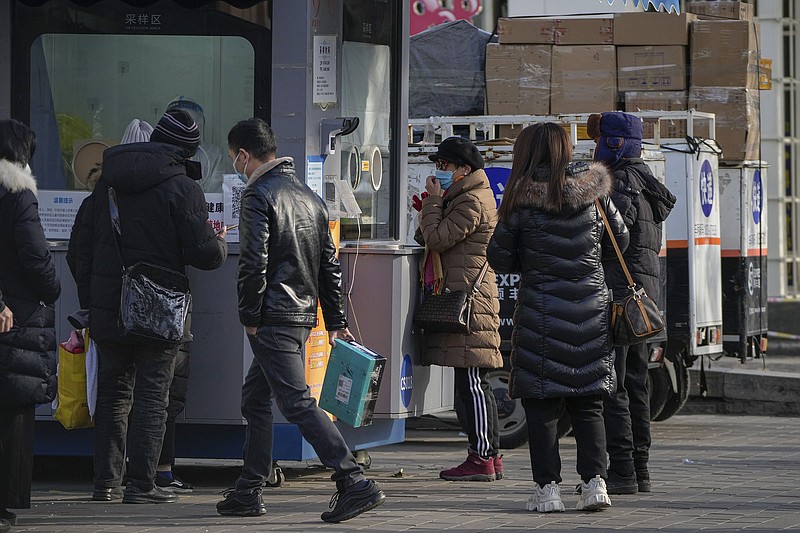BEIJING -- China's imports and exports shrank in November under pressure from weakening global demand and anti-coronavirus controls at home.
Exports sank 9% from a year ago to $296.1 billion, worsening from October's 0.9% decline, Chinese customs data showed Wednesday. Imports fell 10.9% to $226.2 billion, down from the previous month's 0.7% retreat, according to the data, in a sign of a deepening Chinese economic slowdown.
The country's global trade surplus narrowed by 2.5% from a year earlier to $69.9 billion. Trade had been forecast to weaken as global demand cooled after interest rate increases by central banks in the United States, Europe and Asia to tame surging inflation.
Chinese consumer demand has been hurt by a "zero-covid" strategy that has shut down large sections of cities to contain outbreaks. The shutdowns have disrupted business and confined millions of people for weeks at a time.
On Wednesday, China rolled back rules governing that strategy and dropped virus test requirements for some public places. Residents with mild cases will be allowed for the first time to isolate at home, the National Health Commission announced, instead of going to sometimes overcrowded or unsanitary quarantine centers.
Amid the previous quarantine efforts, consumer spending contracted in October, and factory activity weakened. Retail sales sank 0.5% compared with a year earlier, down from September's 2.5% expansion, separate data showed Tuesday. Growth in factory output decelerated to 5% from the previous month.
"November is shaping up to be even worse," said Zichun Huang of Capital Economics in a report.
Chinese economic growth rebounded to 3.9% over a year earlier in the three months ending in September, but economists say activity already is cooling, having cut forecasts of annual growth to as low as 3%, a level among the weakest in decades.
Exports to the U.S. fell 25.4% from a year earlier to $40.8 billion, while imports of American goods sank 7.3% to $16.5 billion. The politically sensitive surplus with the U.S. narrowed by 34.1% to $24.3 billion.
Imports from Russia, mostly oil and gas, rose 28% from a year earlier to $10.5 billion. Exports to Russia gained 18.5% to $7.7 billion.
The U.S., Europe and Japan are cutting purchases of Russian oil and gas to punish President Vladimir Putin's government for its attack on Ukraine, but the sanctions don't prevent China, India or other countries from buying Russian exports.
Beijing is buying more to take advantage of Russian discounts. That irks Washington and its allies by topping up the Kremlin's cash flow. President Joe Biden has warned Xi against helping Putin evade sanctions.
Xi said in a letter to a business conference this month that China, one of the biggest buyers of Russian oil and gas, is ready to "forge closer partnership" with Moscow in energy, according to the official Xinhua News Agency. It gave no details.
CEMENTING SAUDI TIES
In an effort to help revive the economy, Chinese leader Xi Jinping arrived Wednesday in Saudi Arabia to attend meetings with oil-rich Gulf Arab nations crucial to China's energy supplies.
Gulf Arab states are trying to recalibrate foreign policy as the U.S. turns its attention elsewhere in the world. Russia's war on Ukraine and the West's hardening stance on Moscow have also left the Arab countries wanting to cement ties with China.
During the visit, Xi is expected to attend the inaugural China-Arab States Summit and a meeting of the Gulf Cooperation Council, which includes the kingdom along with Bahrain, Kuwait, Oman, Qatar and the United Arab Emirates.
Although few other details about the visit have emerged, Chinese authorities offered superlatives ahead of the trip.
It's the "largest and highest-level diplomatic event between China and the Arab world since the founding of the People's Republic of China and will become an epoch-making milestone in the history of China-Arab relations," Foreign Ministry spokesperson Mao Ning told reporters at a daily briefing Wednesday.
China, the world's largest crude oil importer, relies heavily on Saudi oil and pays tens of billions of dollars annually to the kingdom.
Xi plans to meet 86-year-old Saudi King Salman, as well as his 37-year-old son, Crown Prince Mohammed bin Salman. For Prince Mohammed, hosting Xi boosts his own international profile after being linked to the killing of Washington Post columnist Jamal Khashoggi.
Beyond China's oil purchases, its construction expertise will likely be tapped as well for Prince Mohammed's planned $500 billion futuristic city of Neom on the Red Sea. Chinese construction firms have worked elsewhere in Arab countries in the Persian Gulf, particularly in Dubai in the United Arab Emirates.
Information for this article was contributed by Joe McDonald and Jon Gambrell of The Associated Press
 A worker wearing a face mask adjusts an advertisement banner inside a reopened shop selling health products after authorities start easing some of the anti-virus controls in Beijing, Wednesday, Dec. 7, 2022. China's imports and exports shrank in November as global demand weakened and anti-virus controls weighed on the second-largest economy. (AP Photo/Andy Wong)
A worker wearing a face mask adjusts an advertisement banner inside a reopened shop selling health products after authorities start easing some of the anti-virus controls in Beijing, Wednesday, Dec. 7, 2022. China's imports and exports shrank in November as global demand weakened and anti-virus controls weighed on the second-largest economy. (AP Photo/Andy Wong) A worker replaces pillow covers inside a reopened household store after authorities start easing some of the anti-virus controls in Beijing, Wednesday, Dec. 7, 2022. China's imports and exports shrank in November as global demand weakened and anti-virus controls weighed on the second-largest economy. (AP Photo/Andy Wong)
A worker replaces pillow covers inside a reopened household store after authorities start easing some of the anti-virus controls in Beijing, Wednesday, Dec. 7, 2022. China's imports and exports shrank in November as global demand weakened and anti-virus controls weighed on the second-largest economy. (AP Photo/Andy Wong) A worker moves goods past a dismantled COVID-19 testing site outside shops after authorities start easing some of the anti-virus controls in Beijing, Wednesday, Dec. 7, 2022. China's imports and exports shrank in November as global demand weakened and anti-virus controls weighed on the second-largest economy. (AP Photo/Andy Wong)
A worker moves goods past a dismantled COVID-19 testing site outside shops after authorities start easing some of the anti-virus controls in Beijing, Wednesday, Dec. 7, 2022. China's imports and exports shrank in November as global demand weakened and anti-virus controls weighed on the second-largest economy. (AP Photo/Andy Wong)